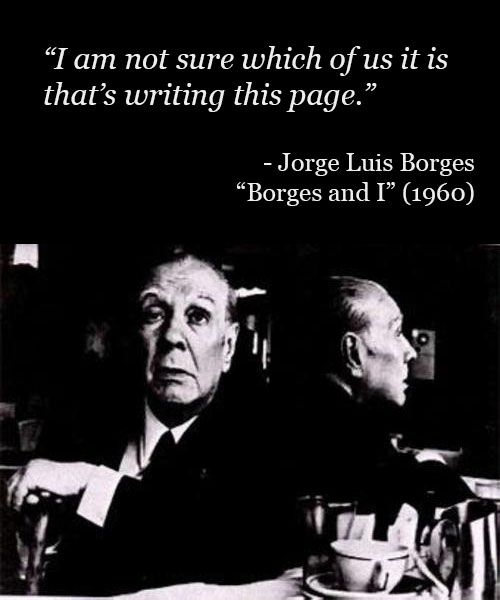
It occurred to me sometime ago that when we pour something we’re not actually pouring anything. Continue reading “Misattributions”

A Peer Reviewed Blog

It occurred to me sometime ago that when we pour something we’re not actually pouring anything. Continue reading “Misattributions”

Bill Burr: There’s this new level of, like, selfishness when you go to a comedy club, where they’ll watch you for 40 minutes and take everything as a joke, and then all of a sudden you hit a topic that’s sensitive to them and then, all of a sudden, you’re making statements.
Jerry Seinfeld: Right
Bill Burr: I’ve just given into the fact that once I say something now it’s not mine anymore. It literally goes into somebody else’s brain and its cut with their childhood, their experience, whatever happened that day…
Watch the whole episode here.
 The author Douglas Coupland — who you might remember from his bestselling first novel, Generation X (1991) — was interviewed the other morning on the radio, about his new book, Kitten Clone: Inside Alcatel Lucent, a look into one of the world’s largest telecomm companies.
The author Douglas Coupland — who you might remember from his bestselling first novel, Generation X (1991) — was interviewed the other morning on the radio, about his new book, Kitten Clone: Inside Alcatel Lucent, a look into one of the world’s largest telecomm companies.
For some time I’ve been thinking about the normative model of the lone individual (one that’s as much in keeping with Rousseau’s notion of society being the result of separate citizens making agreements with each other as it is with a modern economic theorist’s notion of lone consumers all making rational choices) that is usually presupposed when it comes to warnings about the effects of the internet — and this interview made this all very apparent. For who’s to say what ought to count as an individual? For at least in the U.S., corporations and fetuses now seem to have the status — evidence that there’s an arm wrestling match going on right now over the limits of what counts as a person. (The fact that “we” even debate it should be sufficient evidence to dispel with the notion of individuality as actually describing anything other than the ongoing debate itself.) Continue reading ““You’d Never Ever Phone Up a Friend and Say ‘Hey, Come on Over to My House; Let’s Go on the Internet Together’.””

When [Walter] Kirn was just starting his novel-writing career, he met a man who was a bold financier, an art collector, a fussy eccentric, a dog lover and a Rockefeller. They became friends.
But over the years Kirn began to learn that the man who called himself Clark Rockefeller was none of that — not even a dog lover. He was a psychopath and a killer.
How did Kirn fall for the fraud? Was Christian Karl Gerhartsriter — aka “Clark Rockefeller” — extraordinarily compelling? Or was the novelist, like a lot of other people drawn to the imposter, duped by his own desire to have an attachment to a famous name?
So opens a radio story on the curious case of Clark Rockefeller — or, might we say instead, the curious case of people, such as Kirn himself, who believed his friend to be the man he claimed to be. The difference between how we approach this story — is it about Rockefeller (pictured above) or Kirn? — tells us much about the social theory used to tell the tale. Continue reading “Everybody Plays the Fool”
 Read more.
Read more.